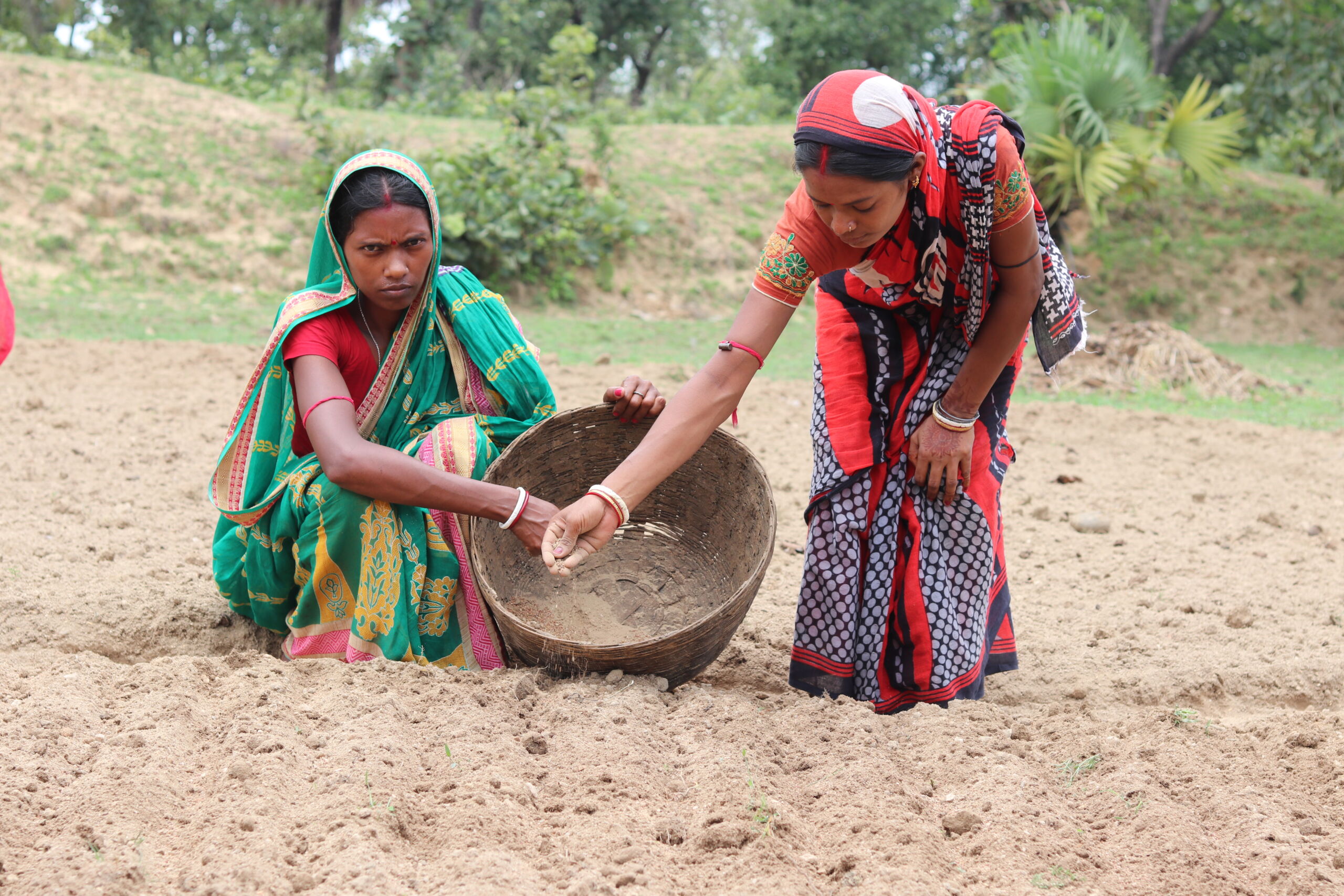
Sustainable Agriculture
Sustainable and resilient agriculture in the face of climate change exacerbated by natural events like heat waves, floods, and droughts, are the need of the hour, in addition to ensuring access to nutritious food for all. Efforts to support sustainable agriculture include training programs on the preparation of organic fertilizers, growth promoters, and pesticides, as well as the promotion of sustainable irrigation and harvesting procedures. These initiatives focus on making the farmers self-sufficient, reducing their input costs, increasing agricultural income, and enabling circular and zero waste systems on farms. Through the ONFarm Fresh Innovation Producer Limited, the Move For Earth community has been successful in creating an entire zero-waste sustainable organic farming model.
Through the Move For Earth initiative, the community has engaged 600+ farmers and rural societies in awareness- and capacity-building initiatives, such as:
- Organizing an Indigenous Rice Festival, followed by training modules on organic farming and micro-irrigation.
- Promoting renewable energy in the agricultural sector by conducting workshops on the usage and maintenance of solar pumps and generating awareness on government schemes to implement renewable technology
- Educating farmers on agriculture infrastructure funds
In the International Year of the Millets, the Move For Earth community is especially focused on reviving the cultivation and consumption of this resilient and indigenous crop. Some of our millet-specific programming includes:
- Conducting State and District Level Workshops: In collaboration with the respective State Agriculture Departments and WBSRLM, the Move For Earth community has educated 1000+ farmers on the benefits of millets in eight districts covering the states of West Bengal, Odisha and Jharkhand
- Seed Distribution & Training: Pearl Millet seeds were distributed amongst 250+ farmers, accompanied by ground-level demonstrations, training and ongoing support for effective cultivation.
Procurement Fund: Funds are allocated to procure millets among farmers and communities. High-quality seeds are procured and distributed among farmers. Some funds will be used to set up millet food stalls, and the revenue goes back to a community fund. The produce is purchased directly from farmers, marking a significant milestone by ensuring market linkage.


